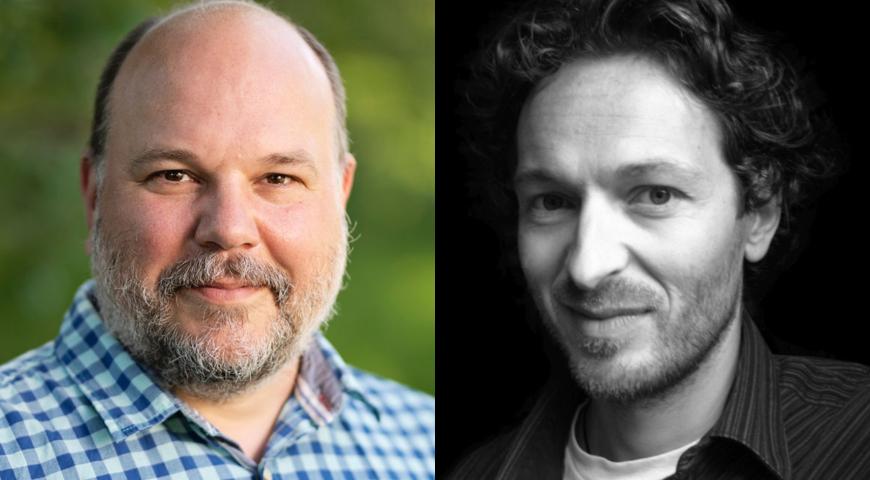
In January VISTA announced a call for proposals for two new VISTA centres. On the basis of evaluations from two expert panels, the VISTA-board has decided to fund
• VISTA Center for Norwegian Transformative Energy Policy Development (NOTRAP) at the Norwegian University of Science and Technology
• VISTA Centre for CO2 storage in volcanic-sedimentary systems (VICCO) at The University of Oslo
The two centres will be funded by a total of 25 MNOK over a five-year period.
VISTA Center for Norwegian Transformative Energy Policy Development (NOTRAP)
Center Leader: Christian A. Klöckner
Host Institution: Norwegian University of Science and Technology (NTNU)
Host Department: Department of Psychology
Proposal Summary
The energy transition is unfolding at an unprecedented speed and depth, significantly impacting energy systems, markets, societies, citizens, and policymakers. Despite its early stages, this transition has already generated social unrest, polarization, and populism, posing risks to democratic stability. The transition's distributional consequences will likely provoke strong opposition aiming to maintain the status quo, necessitating innovative governance strategies. At the forefront of European energy research, the intersection of energy transition and democracy is gaining attention. NOTRAP aims to contribute to this crucial research area by establishing Energy Policy Incubators (EPIs). These incubators will co-create transformative energy policies with citizens, policymakers, industry, scientists, and other stakeholders, utilizing innovative methods such as design fiction, speculative and norm-critical design, meme analysis, eco-visualizations, serious games, disruptive communication, deliberative polling, and artificial intelligence. The analysis of past, current, and future energy policies and their economic and societal impacts will inform the EPIs, whose outcomes will be iteratively assessed for their multilevel impacts, acceptance, and realization potential, aiming to mitigate societal fragmentation and polarization.
Vision and Objectives
Vision: Develop a multi-sector methodology for creating innovative, equitable, and transformative policies for the Norwegian energy transition, assessing their economic, environmental, and socio-political impacts.
Primary Objective: Develop a groundbreaking concept for EPIs, optimized through an iterative, cyclical cybernetic process involving citizen and stakeholder engagement, creative co-construction methods, and multilevel impact assessments to suggest pathways for advancing Norwegian energy policies.
Secondary Objectives:
- Develop a comprehensive simulation method to assess energy policy effects on economic, environmental, and socio-political levels across diverse societal segments.
- Create a pioneering methodology for multi-actor policy co-creation based on critical design and disruptive communication practices.
- Map the current energy policy landscape and assess its multilevel impacts.
- Implement multiple EPIs across different geographical levels, refining the methodology.
- Produce innovative, viable energy transition policy suggestions, deeply engaging citizens and stakeholders.
VISTA Centre for CO2 Storage in Volcanic-Sedimentary Systems (VICCO)
Center Leader: Professor Henrik H. Svensen
Host Institution: University of Oslo (UiO)
Host Department: Department of Geosciences
VICCO aims to explore the potential for large-scale permanent CO2 storage on the Norwegian Continental Self through carbonate mineral-forming reactions. Such carbonatization may enhance seal integrity and reduce reservoir leakage risks in mixed volcanic-sedimentary systems.
Synthesis
CO2 can be stored through Carbon Capture and Storage (CCS) or Carbon Dioxide Removal (CDR), with the success of both approaches critically depending on safe, long-term storage in geological reservoirs. VICCO will characterize, de-risk, and verify poorly studied CO2 reservoirs in the North Sea and along the Atlantic margin, applicable to both CCS and CDR.
Adopting a multi-disciplinary approach, VICCO will investigate complex volcanic-sedimentary systems with highly reactive mafic and ultramafic rocks, widespread offshore Norway, which have significant potential for permanent carbon mineralization of gigatons of CO2.
The centre will foster cross-disciplinary research between geologists at the Department of Geosciences and physicists at the Njord Centre, both at Univ. Oslo. Moreover, VICCO will work together with an international team of leading researchers. VICCO will provide a multi-scale characterization of mineral carbonation processes, from nano-scale porosity structures and reaction mechanisms to large-scale storage potential and CO2 trapping in offshore Norway's heterogeneous reservoirs.
VICCO will specifically provide new insights into sediment heterogeneity and mineralization potential from pore- to basin-scale. The knowledge is crucial for defining safe spatio-temporal storability, injectivity, migration, and enhanced CO2 trapping mechanisms.
Vision and Objectives
Vision: Unlock new opportunities for gigaton CO2 storage on the Norwegian Continental Shelf by exploring novel mixed sedimentary-volcanic environments that facilitate rapid, low-risk permanent carbon storage through mineralization.
Primary Objective: Increase CO2 storage potential by advancing the understanding of complex mixed volcanic-sedimentary basins and high reactivity mineralization zones for permanent storage as carbonate minerals.
Secondary Objectives:
- Understand mineral carbonation processes from nano- to pore-scale reactions in volcanic-sedimentary deposits and their influence on porosity and permeability.
- Characterize reservoir and seal properties of mixed sedimentary and volcanic basins during mineral carbonation.
- Quantify petrophysical properties of volcanic and sedimentary reservoir-seal systems suitable for CO2 mineralization offshore Norway.
- Integrate seismic mapping and reservoir modeling of fluid flow and mineral carbonation to identify sequences with gigaton CO2 storage potential.
- Constrain injectivity of volcanic-sedimentary systems before and during mineral carbonation.
Conclusion
The establishment of the VISTA Center for Norwegian Transformative Energy Policy Development (NOTRAP) and the VISTA Centre for CO2 Storage in Volcanic-Sedimentary Systems (VICCO) marks a significant milestone in advancing research on energy policy and CO2 storage. With substantial funding and a clear vision, these centres aim to develop innovative solutions and methodologies that will play a crucial role in Norway's energy transition and global efforts to mitigate climate change.